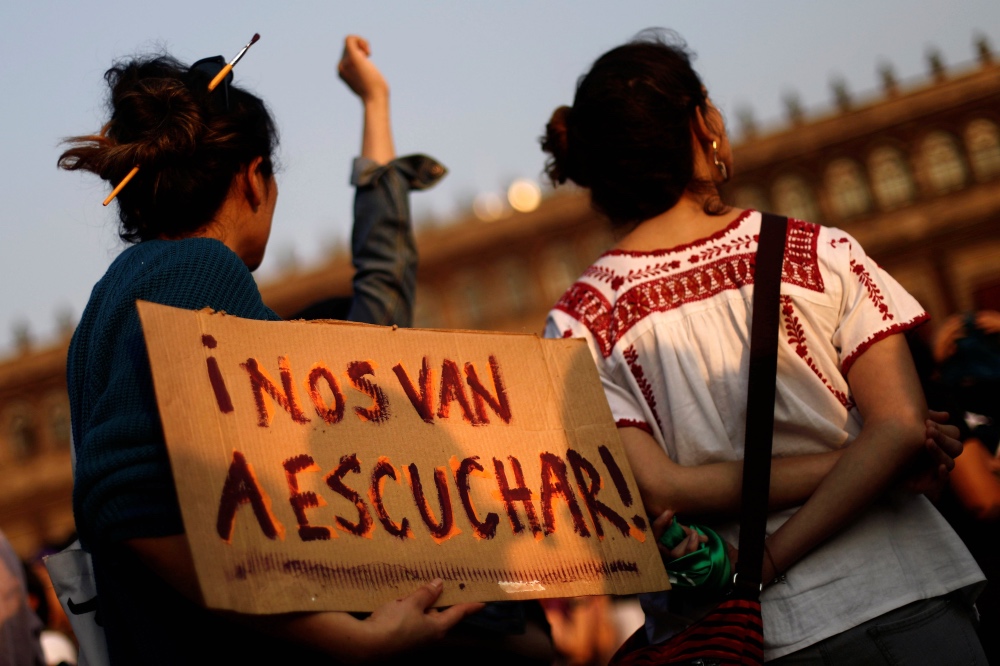Bogota, Colombia
Thomson Reuters Foundation
One in five people in Latin America and the Caribbean has either direct or indirect experience of officials using their positions of power to demand sexual favours, usually from women, according to a survey published on Monday.
“Sextortion” – abuse of power to obtain sexual favours – is prevalent in Latin America partly due to inequality between men and women in politics and pay though few reliable statistics exist on the form of corruption that is notoriously hard to prove.

A woman holds a sign that reads “They will listen to us! ” as she protests against femicide and violence against women in Mexico City, Mexico, 2nd February, 2019. PICTURE: Reuters/Edgard Garrido
However, a survey by anti-corruption group Transparency International of 17,000 people from 18 Latin American countries found the practise to be widespread in schools, hospitals and municipal buildings.
Seven out of 10 people said sexual extortion happened “at least occasionally”.
“In some cases, when women are asked for a bribe, the currency changes from money to sexual favours,” the chair of Transparency International, Delia Ferreira, told the Thomson Reuters Foundation.
Of the countries surveyed, Barbados fared worst with 30 per cent of people saying they had experiences of sextortion or knew someone who had, followed by the Bahamas and Guatemala. Panama and Chile fared best, at 14 per cent.
Women often experience petty corruption in their daily lives at the hands of low-level civil servants who exploit mothers seeking social services, Ferreria said.
Inspired by the #MeToo movement, hundreds of thousands of women from Argentina to Mexico have taken to the streets since 2018 to speak out against sexual violence and harassment.
But despite progressive legislation protecting women in places like Brazil, rights groups say prosecutors still find it difficult to charge people for sexual exploitation because evidence is elusive and victims shy away from coming forward.
Often taking place behind closed doors and attached to stigma, there is scant information on sexual extortion in other parts of the world.
Women in Kenya have had to exchange sex for water, according to the water policy institute SIWI.
A 2014 study by the IAWJ and the Thomson Reuters Foundation on laws in Argentina, Australia, Brazil, Canada, Kenya, Mexico, Taiwan, Uganda and the United Kingdom found that none of the nine countries had adopted laws that use the term sextortion.






